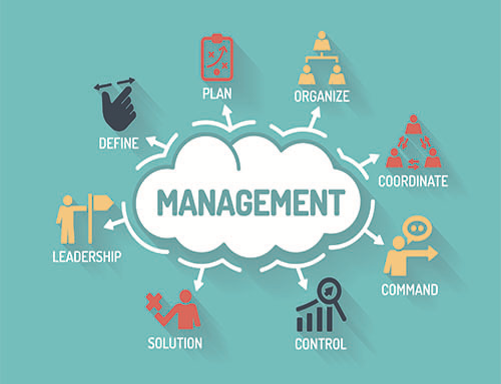
22 Mar Why Companies Use Project Management
Companies use project management to achieve results in a measured, focused and predictable way. Project management processes keep complex plans organized and all individuals involved aligned and focused with specific roles and responsibilities.
Companies use project management for these reasons:
- Project management creates a focus.
- Project management controls quality.
- Project management minimizes risks.
- Project management reduces project costs.
- Project management encourages teamwork.
- Project management maximizes resources.
- Project management encourages learning.
Project management creates a focus
Projects, especially ones that last months or years, can be challenging for companies to manage. Project management relies on defining a scope for projects that follow specific deadlines for each task. With a clear scope and strict deadlines, companies can stay focused on the objective and complete goals successfully.
Project management controls quality
The most important part of project management is delivering a quality project on time and in full. To deliver a satisfactory project, a project manager closely monitors their team’s progress and quality of work. A project manager will oversee their team’s work, identify any obstacles that could affect the quality and find acceptable solutions.
Example: Throughout the hotel management system project, your project manager holds daily meetings and weekly individual team member sessions to measure the project’s progress. They also audit the quality of your team’s work by taking samples and asking employees outside of your team to evaluate them. Your coworkers give a fresh perspective on the quality and provide valuable feedback that helps your team improve its work.
Project management minimizes risks
The first phase of project management involves evaluating whether the risks of a project outweigh the benefits. If a company chooses to continue with a project, project managers will continually assess potential risks and formulate plans to minimize them. Fewer risks ensure a timely and successful project.
Example: During the execution phase, you and your project manager discover there may be an issue integrating the hotel’s current property management system with your new one. To eliminate this risk, they hold a special session where your project team formulates several ideas for a solution. After evaluating all of the solutions, your project manager chooses to implement one that poses the least risk to the rest of the project.
Project management reduces project costs
During the planning phase, project managers and stakeholders define a budget for the project. Having a thorough budget helps project managers reduce costs by knowing exactly how much they can spend on resources. Further, once a company creates successful project management phases, they can reuse the processes in future projects.
Example: Your project manager spends a portion of each day comparing the current cost of the project against the budget. By reviewing this information daily, they make sure the project will not go over the planned budget.
The hotel owner has also mentioned that they may be interested in creating an application for tablets for housekeepers to use. If they decide to move forward with that project, your team will already have a basic template to work from.
Project management encourages teamwork
Collaboration is crucial to achieving goals during a project. Effective teamwork allows groups to utilize the strengths of each individual, making workflows more efficient.
Example: Apart from your daily meeting and individual team member meetings with your project manager, your team holds a weekly session to share ideas. During this session, members share new knowledge that the rest of the team may find useful. Members also pose individual challenges so the group can find a common solution. You end the meeting by having each member highlight another member’s effort or success.
Project management maximizes resources
It is critical for a company to make the best use of its resources to help reduce project time and stay within a budget. Resources can include a project team’s time or costs such as travel, tools and materials. A large part of project management defines the resources necessary to complete a project and forms a plan to use them correctly. By completing a project on time, team members can begin work on other projects quickly, which maximizes the company’s resources.
Example: You must log your hours in a time tracking system each week, where you list how many hours you spent on each task. The system then creates a report that your project manager reviews at the beginning of the week to determine whether you are spending the right amount of time on each task and if the project will meet the deadline.
Project management encourages learning
During the closing phase, project management teams reflect on the project. They hold post-project meetings called retrospectives where they discuss the process, successes and setbacks. Retrospectives are an ideal time for team members to document their strengths and areas where they can improve.
Example: Your project manager holds a meeting once the hotel approves the project. They start the meeting by highlighting the successes and praising individual team members. After that, they invite members to share their experiences and what they learned.
You describe how you did a great job documenting your process so it’s easy for others to see exactly what you did and how you did it. However, the documenting process took longer than expected and you felt rushed at some points. In the future, you plan to set aside an amount of time to document your work.
Project management can help you be a better team member. You also learn valuable skills such as teamwork, time management and communication. Learning more about why your company uses this process will provide you with insight into your company’s objectives so you can align your goals and excel in your career.
(www.indeed.com/importance of project management)

